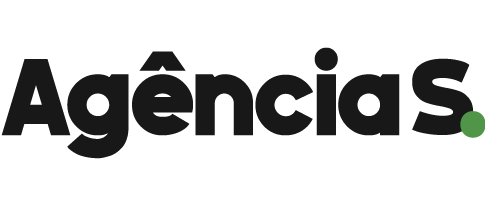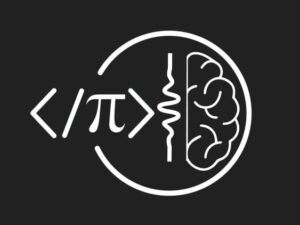Emergency Course for the TOEFL iBT: Prep in Just 2 Days
- Descrição
- Currículo
- FAQ
- Revisões
*April 30th, 2024 updated*
Looking for a quick and simple guide to the new TOEFL exam?
You found it.
The TOEFL Emergency Course was designed to focus on the most important elements of the exam. By the end of the course, students will be able to predict the structure of each section of the exam and utilize exclusive strategies for answering all of the questions.
Most importantly, after going through the entire TOEFL Emergency Course, students will enter the exam feeling comfortable and confident in their TOEFL knowledge and skills.
Students who enroll in the course will gain access to:
-
Study Plan (2 days, 1 week, 2 weeks, or 1 month)
-
7 hours of never-before-seen video lectures
-
2 Complete TOEFL tests (with answer keys)
-
TOEFL Vocabulary List
-
TOEFL Speaking and Writing Guides
And students will be able to go through all of the video content in just seven hours. This course is a perfect fit for students who are new to the TOEFL or for experienced TOEFL takers who are looking for a fresh approach to the test.
There are two types of TOEFL takers, those who get their score and those who do not. The ones that fail to reach their goal regret their lack of preparation. Enroll today and walk in on TOEFL test day without any regrets.
-
1Introduction to the TOEFL Emergency CourseVídeo Aula
Welcome to the TOEFL Emergency Course, where, in just seven short hours, you will learn everything you need to know about the TOEFL. There is a lot of information to cover, but in this introduction, we are going to take a closer look at the layout of the course and what you will be able to do by the end.
-
2The New TOEFL Test StructureVídeo Aula
-
3TOEFL Test Updates, Spring 2024Vídeo Aula
The content of the TOEFL iBT test has not changed, but the company that makes the test, ETS, has updated their website and included some free practice material I thought you would find useful. This is the TOEFL Test Ready Platform, it is also where you will go to register for the exam: https://v2.ereg.ets.org/ereg/public/jump?_p=TEL
-
4What to Expect from the CourseVídeo Aula
In this course, you will first discover your current level with a TOEFL practice test, after that you are going to review the structure of the test, and then learn the best strategies to ensure your success on test day. This introduction video will help you get a better idea of how we are going to cover so much ground in so little time.
-
5Creating Your TOEFL Study ScheduleVídeo Aula
In the TOEFL Emergency Course, you do not have to worry about planning what to study. We have laid everything out for you, so you don't have to waste any time as you prepare for the exam. Pick the time that works best for you: 2 days, 1 week, 2 weeks, or 1 month. After that, all you have to do is follow along.
-
6All PDF Downloads for the TOEFL Emergency CourseTexto
Here you will be able to find all of the downloadable PDF materials included in this course. If you hear me mention one of these resources in another video, you can find it here.
-
7Complete TOEFL Practice Test #1Vídeo Aula
It is time to practice with a real TOEFL test. Set aside two hours to complete all four sections of this practice test. It is important for you to have some experience with an actual TOEFL test. The lectures in the course will make more sense, and you will learn more in every section. Good luck :)
-
8Introduction to the TOEFL ReadingVídeo Aula
This is a list of just a few of the things you will be able to do by the end of this short TOEFL Reading section: identify each reading question type, manage your time during the reading section, build TOEFL Reading vocabulary skills, learn from the best TOEFL vocabulary list, begin to read actively, use keywords to increase question answering speed, and discern between correct and incorrect choices. Let’s do it.
-
9TOEFL Reading Question TypesVídeo Aula
Do you know all ten question types for the TOEFL Reading? If not, you need to watch this video. Each question type requires a different approach to answer. If you can not properly identify the question, it will be tough to answer. Watch this video and learn how to distinguish between all ten types of TOEFL Reading questions.
-
10Time Management for the TOEFL ReadingVídeo Aula
In the TOEFL Reading, you have 60 minutes to read three texts, each approximately 700 words. You are also required to answer approximately 42 questions, about 14 per passage. If this sounds easy to you, I can assure you that it is not. It’s a demanding portion of the exam that requires your full attention. You have to go into this section with a specific strategy in mind if you expect to answer all the questions before time expires. Learn exactly how to manage your time to ensure that you answer every question in the TOEFL Reading.
Homework: Read through the Time Management handout. (15 minutes)
-
11Vocabulary and the TOEFL ReadingVídeo Aula
Vocabulary questions are one of the most common in the TOEFL Reading, which is why you need a specific strategy to help you answer them. By the end of this lecture, you will know how to utilize word parts, eliminate choices, and avoid trap answers in the TOEFL Reading.
-
12The Best TOEFL Vocabulary ListVídeo Aula
TOEFL Reading passages are academic texts. The words used in academic texts are different than the ones you might expect to read in a novel. You will use the Academic Word List to familiarize yourself with academic vocabulary that will most likely show up in the reading passages of the TOEFL. More importantly, you will learn how to use this list and study at home.
-
13How to Read ActivelyVídeo Aula
Many TOEFL takers wonder about the best way to improve their score. Most of the time, all they need is a different approach to studying for the test and thinking about the questions. Active reading is one of the best ways to help test-takers re-conceptualize the TOEFL Reading in a way that has a dramatic impact on their overall comprehension. Follow this step-by-step guide to learn how to read actively.
-
14Using Key Words to Increase Speed and EfficiencyVídeo Aula
Some words are more important than others. Performing well on the TOEFL Reading is not just about understanding what you read, but also identifying important information. Once you know what keywords are, you will be able to use them to find answers in the reading.
-
15Identifying Incorrect ChoicesVídeo Aula
This is one of the most powerful lessons in the entire course. TOEFL test-makers create both correct and incorrect choices. Believe it or not, incorrect choices are more difficult to make than correct ones. In fact, there are a few common ways to craft an incorrect choice. Learning about these test patterns will help you spot incorrect options and lead you to the correct one on test day.
-
16Using AI to Improve Your TOEFL ReadingVídeo Aula
Artificial Intelligence has become a more integral part of our online experience. While some tend to overestimate AI's impact, it is certainly a useful tool in preparing for the TOEFL. Check out this video and learn how to use some AI tools to improve your TOEFL Reading score.
-
17You Know More Than 99% of Test Takers About the TOEFL ReadingVídeo Aula
Congratulations on making it this far. You have come a long way. In this lecture, you will reflect on all you have learned in the reading section. For some, these videos will not be enough. You still need more practice, strategy, and guidance. Watch to learn what to do next.
-
18Introduction to the TOEFL ListeningVídeo Aula
Congratulations on making it to the listening section of the TOEFL Emergency Course. This is a list of just a few of the things you will be able to do by the end of this short TOEFL Listening section: identify each listening question type, understand how to take effective notes, listen actively, figure out the main idea in any passage, record hard-to-remember information in your notes, and improve your listening focus. Let’s do it.
-
19TOEFL Listening Question TypesVídeo Aula
There are eight different question types in the TOEFL Listening section. Do you know what they are? If not, this lesson is crucial. Learn to distinguish between each question type so you know how to respond to each on test day.
-
20Finding the Main Idea in ConversationsVídeo Aula
Two of the passages in the listening section are conversations. In these dialogues, the main idea is usually the student’s problem. Once you identify the student’s problem, you get a better handle on the flow of the conversation and what information is important. This lecture will teach you how to find the main idea in conversations.
-
21Finding the Main Idea in LecturesVídeo Aula
Two of the passages in the listening section are lectures. In these audio files, the main idea is centered around what the professor would like the listener to know by the end of the lecture. You will not be required to know about the topic. Watch this video to learn how lectures are structured in the listening section and how to find the main idea.
-
22Your TOEFL Note-taking StyleVídeo Aula
You have probably figured out by now that you have to take notes during the TOEFL exam, especially for the listening. However, you still may be a bit confused on how to do it. In this lecture, you will learn how to take notes like a North American college student. This skill will help increase the amount of content you understand and record on paper.
-
23How to Take Notes for ConversationsVídeo Aula
Now that you have a method for taking notes, it’s time to apply it. Here you will learn what you could, should, and must write down when listening to conversations. Your notes will not help much if the information is useless. Learn exactly what to listen for when taking notes during these audio passages.
-
24How to Take Notes for LecturesVídeo Aula
Listening to a five-minute lecture without breaking your concentration might be a challenge, which is why you must watch this next lecture. You will learn about the structure of the lectures and the hierarchy of information you hear. This information will help organize both your thoughts and your notes.
-
25Three Ways to Improve Your Listening FocusVídeo Aula
Everyone loves a good listener, but how do you actually become one for the TOEFL? Train your eyes to focus only on the computer screen is one way. Another is to listen with a specific goal in mind. These are just a few of the tips you will learn to utilize to enhance your focus and listen with purpose on test day.
-
26How to Use AI to Improve Your ListeningVídeo Aula
Artificial Intelligence has become a more integral part of our online experience. While some tend to overestimate AI's impact, it is certainly a useful tool in preparing for the TOEFL. Check out this video and learn how to use some AI tools to improve your TOEFL Listening score.
-
27You Know More Than 99% of Test Takers About the TOEFL ListeningVídeo Aula
Congratulations on making it this far. You have come a long way. In this lecture, you will reflect on all you have learned in the listening section. For some, these lectures will be enough. For others, you may still need more practice, strategy, and guidance. Watch to learn exactly where to go next.
-
28Introduction to the TOEFL SpeakingVídeo Aula
Congratulations on making it to the speaking section of the TOEFL Emergency Course. This is a list of just a few of the things you will be able to do by the end of this short TOEFL Speaking section: understand the basics of the TOEFL Speaking grading criteria, learn the structure of all four questions, utilize a templated response for each question, organize your responses to align with time restrictions, score your own responses and shadow native speakers. Let’s do it.
-
29TOEFL Speaking Question 1, Part 1Vídeo Aula
For every single TOEFL Speaking question, your goal is to sound natural and conversational. Now, you will learn about question type #1. You will be provided with a word-for-word template that you can memorize and apply to almost any speaking question one. Once you understand the structure of the question and how you should respond, you will be able to walk in on test day feeling comfortable and confident with any TOEFL Speaking question one.
-
30TOEFL Speaking Question 1, Part 2Vídeo Aula
After you have learned how the question will look and how you should respond, it’s time to actually prepare your own response. In this lecture, you will see a “perfect example” of a response to speaking question one that utilizes the template you learned in the previous lecture. After you see how to respond, it’s time for you to try it on your own. You will be provided with a scoring rubric to help you analyze your own recorded responses at home.
-
31TOEFL Speaking Question 2, Part 1Vídeo Aula
For every single TOEFL Speaking question, your goal is to sound natural and conversational. Now, you will learn about question type #2. You will be provided with a word-for-word template that you can memorize and apply to almost any speaking question two. Once you understand the structure of the question and how you should respond, you will be able to walk in on test day feeling comfortable and confident with any TOEFL Speaking question two.
-
32TOEFL Speaking Question 2, Part 2Vídeo Aula
After you have learned how the question will look and how you should respond, it’s time to actually prepare your own response. In this lecture, you will see a “perfect example” of a response to speaking question two that utilizes the template you learned in the previous lecture. After you see how to respond, it’s time for you to try it on your own. You will be provided with a scoring rubric to help you analyze your own recorded responses at home.
-
33TOEFL Speaking Question 3, Part 1Vídeo Aula
For every single TOEFL Speaking question, your goal is to sound natural and conversational. Now, you will learn about question type #3. You will be provided with a word-for-word template that you can memorize and apply to almost any speaking question three. Once you understand the structure of the question and how you should respond, you will be able to walk in on test day feeling comfortable and confident with any TOEFL Speaking question three.
-
34TOEFL Speaking Question 3, Part 2Vídeo Aula
After you have learned how the question will look and how you should respond, it’s time to actually prepare your own response. In this lecture, you will see a “perfect example” of a response to speaking question three that utilizes the template you learned in the previous lecture. After you see how to respond, it’s time for you to try it on your own. You will be provided with a scoring rubric to help you analyze your own recorded responses at home.
-
35TOEFL Speaking Question 4, Part 1Vídeo Aula
For every single TOEFL Speaking question, your goal is to sound natural and conversational. Now, you will learn about question type #4. You will be provided with a word-for-word template that you can memorize and apply to almost any speaking question four. Once you understand the structure of the question and how you should respond, you will be able to walk in on test day feeling comfortable and confident with any TOEFL Speaking question four.
-
36TOEFL Speaking Question 4, Part 2Vídeo Aula
After you have learned how the question will look and how you should respond, it’s time to actually prepare your own response. In this lecture, you will see a “perfect example” of a response to speaking question four that utilizes the template you learned in the previous lecture. After you see how to respond, it’s time for you to try it on your own. You will be provided with a scoring rubric to help you analyze your own recorded responses at home.
-
37Online Tools for TOEFL SpeakingVídeo Aula
In the past, TOEFL test-takers needed to work with a teacher to get feedback on their speaking along with a plan to help improve their score. Now, there are a handful of useful online tools that can help anyone improve their speaking. Watch this video to learn about a couple of websites that are incredibly useful for students preparing for the test on their own and who need some help practicing speaking.
-
38How to Use AI to Improve Your SpeakingVídeo Aula
Artificial Intelligence has become a more integral part of our online experience. While some tend to overestimate AI's impact, it is certainly a useful tool in preparing for the TOEFL. Check out this video and learn how to use some AI tools to improve your TOEFL Speaking score.
-
39You Know More Than 99% of Test Takers About the TOEFL SpeakingVídeo Aula
Congratulations on making it this far. You have come a long way. In this lecture, you will reflect on all you have learned in the speaking section. For some, these lectures might now be enough. You may still need more practice, strategy, and guidance. Watch to learn exactly where to go next.












